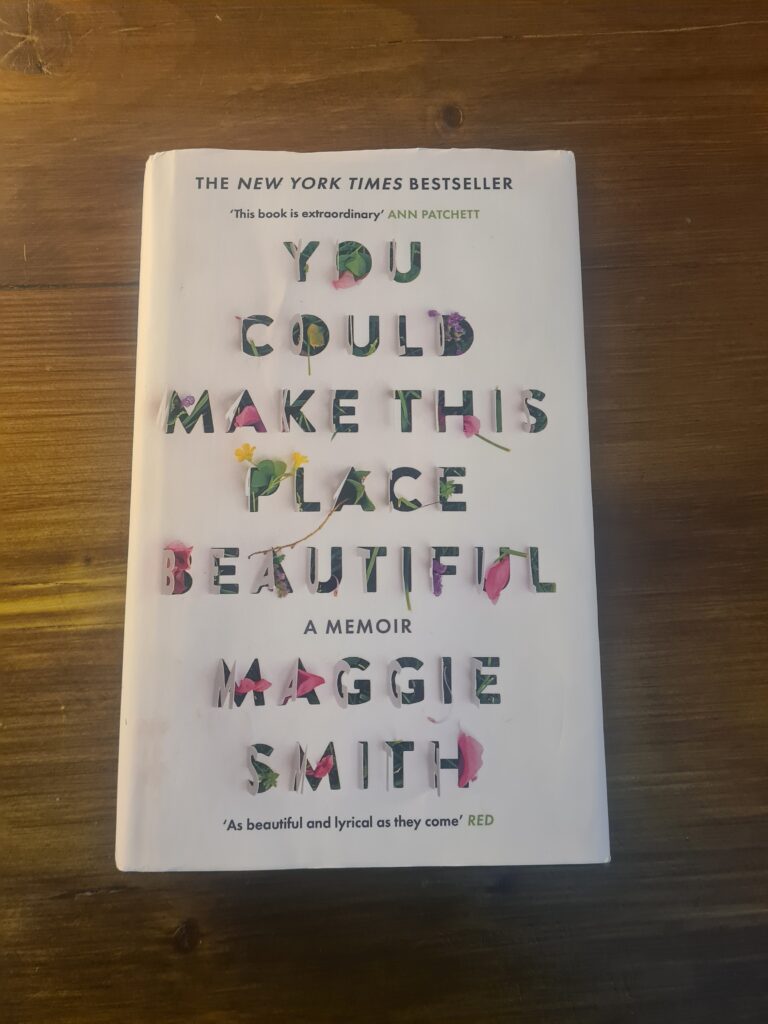
When I was younger, and watched Neighbours religiously, I thought I knew everything possible about affairs. Upon discovery of a romantic wrongdoing in Ramsey Street there would be tears, door slamming, and bitter recriminations. But then the cheating partner, fortunately always with somewhere to go, would leave. And that would be that. The marriage done, dusted and disposed of within one 30 minute episode. If only real life were so neat. In her first book, You Could Make this Place Beautiful, Maggie Smith offers readers an intimate look at the end of her own marriage.
And unlike a soap opera, she recounts the long, tortuous route in going from Mrs to Ms.
For months after her husband’s affair is discovered, there’s regular couples counselling in a bid to put things back together. Followed by years of communicating through lawyers, sleeping on sofas and learning to co-parent.
The stats are stark regarding the number of marriages that don’t go the distance (one in three as of 2021). But I’d venture that the pain for the people involved almost never feels typical or workaday. And Within You Could Make This Place Beautiful Maggie Smith gives a candid account of how cutting divorce can be. She writes about the cruelty, the unkindness and the unfurling agony of a person you once loved turning into a cold-eyed stranger. One whom you still have to live with.
A counsellor’s perspective on the book
I’m aware as I write this, that I’m making Smith’s debut memoir sound incredibly depressing. Reading about someone else’s relentless arguments and emails to their lawyer sounds like it could induce a dull thud behind the eyes. But because Smith is a poet, this is not the case. Her writing is lyrical and engaging. She shows you how the hurt of an ending marriage can also contain moments of beauty. She comes to rely on the support of her friends and embarks on a journey of self-awareness. Who is she now, beyond the confines of her marriage? How has she changed from the young woman who wed in her twenties? And what parts of herself did she have to destroy or diminish in order to build her marriage?
However, I feel I should include a word of warning: I found parts of this book cloying. But perhaps this sickly sweetness sits better with its less cynical American audiences. By way of example, she recounts sentences her incredibly wise, incredibly grown up sounding, children have said. And that awful hashtag #Didn’tHappenThoughDidIt popped into my head. Equally at the end of some chapters, as a way to bring her subject to conclusion, she writes ‘next question’. A stylistic trait and a supposedly snappy, sassy way of moving on to something more important. Okay once, but by the third occasion I was so irritated I felt my wrists buzzing.
But despite this, if you’re going through a separation or divorce then I think you’ll find comfort between these covers. The reality of losing love is painful and in our pain we feel alone. But in You Could Make This Place Beautiful, Smith shows us we’re not alone. She too is waking at 3am, considering her choices and wondering how it all went wrong. While also planning a future that feels right to her and can encompass her whole self.
